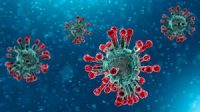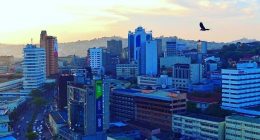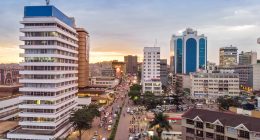Editor’s note: the article was originally published on March 18, on the LéO Africa Institute website.
On March 11 the World Health Organisation declared the Corona virus outbreak a pandemic. The novel coronavirus (COVID-19) was first isolated in Wuhan, China, in January, 2020. Since then, the world has seen a devastating spread of the virus, which has been reported in more than 150 countries and has claimed over 7000 lives.
African countries had largely been spared in the weeks preceding the WHO’s announcement, leading to rumours that people of African descent were immune to COVID-19. However, with recent cases reported in Kenya, Rwanda, and Zanzibar, we have learned that this isn’t the case.
With most of our neighbours affected, what does this mean for Uganda? The Ministry of Health has, through rigorous monitoring and testing, ensured that we remain free of the virus. But what happens if, or when, the virus crosses the border?
First, don’t panic. We can all agree that, in an age of instant constant access to information, it’s difficult to avoid panic. With news outlets racing to be the first to report the latest surge in global deaths due to the virus, it is easy to feel like you are in the thick of it. Breathe. You are not. But anything could happen, and Uganda could be reporting its first COVID-19 case. Keep your guard up.
What can we do for now?
One: be informed.How is the virus spread? COVID-19 is a zoonotic virus, which means it is present in animals and can jump to humans in a phenomenon known as a spillover. However, the commonest mode of transmission currently is human-to-human, through small droplets from the nose or the mouth when an infected person coughs or sneezes.
What does a COVID-19 infection look like? Primarily; fever, fatigue, and a dry cough. However, some patients may present with vomiting, diarrhoea, a runny nose, or shortness of breath. As a country that deals quite regularly with flu outbreaks, the temptation to dismiss these symptoms as a common cold will be great. Resist it. If you experience such symptoms, please visit a health centre. A medical worker will then elicit the required history to decide if you need to undergo testing or not.
Some people may contract the virus and not show any symptoms. This is particularly true for younger healthier people with no conditions compromising their immunity. Older people and those with underlying medical issues like diabetes or cancer are more likely to develop severe illness. This, however, doesn’t mean young healthy people cannot develop severe symptoms as well.
Two: take precautions. Prevention is better than cure. And with a virus for which we are yet to develop a specific cure, this adage has never rung truer. The Ministry of Health, in conjunction with the WHO, has provided a set of guidelines we should all follow to play our role in ensuring Uganda remains coronavirus-free.
These include:
- Frequent hand-washing with soap and water, or using alcohol-based hand rubs in the absence of soap and water.
- Maintaining a distance of at least one metre from a person with symptoms.
- Wearing protective face masks if you are in close proximity with infected persons for a prolonged period.
- Covering one’s nose and mouth with a tissue or the crook of the elbow when coughing or sneezing.
- Avoiding hugs, handshakes, and close contact with people with symptoms of infection.
- Delaying travel to countries currently experiencing outbreaks.
Three: be kind. In terrifying times such as these, it is easy to forget our humanity in the quest to stay alive. We must stand together, not just as a nation, but as a global community, as we fight this pandemic. There’s no reason we shouldn’t turn this crown of thorns into a bed of roses.
Dr. Innocent Acan, MBChB, is a 2018 Fellow of the LéO Africa Institute’s Young and Emerging Leaders Project (YELP). She is a medical doctor and writer currently working at Mengo Hospital, Kampala.









